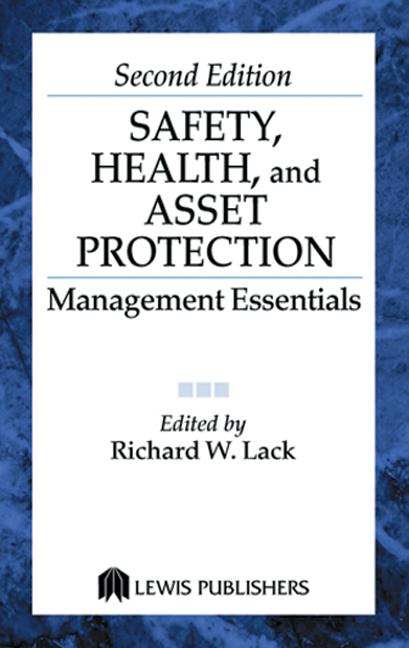Regulatory changes, Hepatitis C and Baby Boomers and the upcoming National Safety Stand-down to Prevent Falls in Construction were among the top stories featured this week on ISHN.com.
Pipeline safety a concern in Michigan
A coalition of residents, tribal leaders, health professionals and environmental advocates are urging Michigan Governor Rick Snyder and Attorney General Bill Schuette to decommission a pipeline they say poses a threat to the environment and human health.
Five injured when machine falls through store roof
Five people were injured in a construction accident in Yonkers, New York City this winter. Authorities say a Bobcat machine fell through the roof of the National Wholesale Liquidators store on Central Park Avenue, with the Yonkers Fire Department calling it a "major roof collapse." "We just looked up, and the whole roof was collapsing on top of the people," customer Alejandro Tellez said.
EPA a big loser in Trump budget
The budget of the EPA would be slashed by 31 percent and funding for research on climate change would be eliminated under the budget proposal unveiled by President Trump today.
Construction workers at highest risk of traumatic brain injuries
Construction workers continue to face some of the highest risks when it comes to injuries in the workplace. One of the most concerning involves traumatic brain injuries (TBI), often caused by falls and being struck by moving vehicles.
Flame resistant vs. flame retardant
Resistance depends on fabric structural strength & self-extinguishing properties
While most of us have never experienced an arc flash or flash fire first hand, it has been proven that these events do occur more commonly than you might think and FR clothing has been proven to greatly enhance your survivability chances should you be exposed to one of these hazards.
Company recognized for promoting mental health among employees
Prudential Financial is being honored for its efforts to promote psychological well-being for its employees, as well as its work to destigmatize mental health issues within its own work culture and beyond.
Are you ready for National Safety Stand-Down to prevent falls in construction?
Fatalities caused by falls from elevation continue to be a leading cause of death for construction employees, accounting for 350 of the 937 construction fatalities recorded in 2015 (BLS data). Those deaths were preventable. The National Fall Prevention Stand-Down raises fall hazard awareness across the country in an effort to stop fall fatalities and injuries. This year the Stand-Down is May 8-12.
Health experts: Proposed ACA replacement would be a “disaster”
The American Public Health Association (APHA) says independent, nonpartisan analysis from the Congressional Budget Office released this week shows that 14 million Americans next year and 24 million by 2026 will lose health insurance under the American Health Care Act, the measure intended to repeal and replace the Affordable Care Act, and most people will pay higher premiums in the short-term — an increase of 15-20 percent for policyholders.
New OIRA head expected to help repeal regs
President Trump is reportedly close to filling the position that will be instrumental in helping him reach his goal of eliminating 75 percent of all federal regulations.
Follow the Plan-Do-Study-Act process for safety improvement
Managing & mitigating risk
Cutting your food at dinner, driving to the store to get milk, walking through puddles on the floor from your shower, and navigating around a dog toy at 2 a.m. have all caused someone varying degrees of pain at some point.
Want to keep your kidneys healthy?
Maintain a healthy weight, says NIH
The National Institutes of Health (NIH) is reminding Americans that being overweight increases the risk of developing diabetes and high blood pressure, the two most common causes of chronic kidney disease (CKD). People affected by obesity have an 83 percent higher risk of developing CKD compared to those who have a healthy weight.
AIHA to members: block overturn of recordkeeping rule
The American Industrial Hygiene Association (AIHA®) is asking its 8,500 members to contact their US Senators and urge them to oppose the passage of H.J.Res.83, which would use the Congressional Review Act (CRA) to permanently overturn OSHA's final rule, which clarifies that an employer is obligated to establish and maintain accurate records of work-related injuries and illnesses throughout a five-year record retention timeframe.
EPA: No need for emissions info from oil industry
Owners and operators in the oil and natural gas industry no longer need to provide the EPA with information about equipment and emissions at their operations, after the agency officially withdrew its request for it earlier this month.
Testing for Hepatitis C remains low among baby boomers
Two years after a task force recommended testing all baby boomers for the Hepatitis C virus (HCV), a new report finds that testing rates among that group are still very low. Approximately 3.5 million people in the United States have chronic hepatitis C virus (HCV) infection. Most of those (80%) are “baby boomers” (born between 1945 and 1965), and most of them are unaware of their infections despite availability of treatments that may reduce their risk of HCV-related diseases, including chronic hepatitis, cirrhosis, and liver cancer.
Texas worker killed in trench collapse
A trench collapse in San Antonio, Texas last week killed a worker and endangered crews and co-workers who were trying to save him.
Construction safety Q&A
All about falls, silica, cranes, overlooked training, confined spaces & best practices
Questions about falls, silica, cranes, overlooked training, confined spaces & best practices answered in this article.
APA voices concerns with American Health Care Act
Calls on Congress to maintain mental health and substance use coverage
The American Psychological Association (APA) said it has serious concern regarding the bill to repeal and replace the Affordable Care Act, arguing that it would reduce mental health and substance use coverage for millions of Americans enrolled in Medicaid and contribute to the loss of coverage for millions more individuals.





